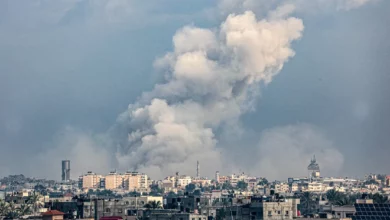In December, the nations of the world and most of its leaders met in Copenhagen to agree on ambitious and immediate global action to combat climate change. That complete vision did not emerge. The task has therefore become more, not less urgent. The window of opportunity to tackle the climate problem closes more rapidly the longer nations delay to act together.
But Copenhagen has raised the challenge to the highest level of government policy, the level where it must ultimately be resolved. Moreover, what emerged from Copenhagen was a consensus among leaders on a collective, long-term response to climate change, and a set of measures to implement global climate action, which came close to completion. These together now point the way forward to achieving the bigger, collective goal.
The Copenhagen Accord was crafted by a group of countries including the biggest, richest, poorest and smallest, and incorporating nations responsible for 80 percent of global emissions. It represents a letter of political intent to limit the global temperature rise, it asks countries to record national emission reduction pledges and promises defined short and long-term finance for the developing world. The Accord was not accepted as a formal decision under the UN’s climate convention. But its aims are anchored strongly in the Convention’s objectives. Any country can now associate itself with those aims. Many countries pledged action before Copenhagen and the world should expect them to honor those pledges.
My communication with countries that agreed to the Accord reveals a strong message that it should not lead to a new negotiating track but can be used to unlock areas of disagreement in the ongoing talks.
Also at Copenhagen, negotiators came close to decisions on a set of measures that would make a long-term response operational: a framework to help poor countries adapt, a mechanism to speed technology transfer, a program to build capacity and agreements to cut emissions from deforestation and agriculture
It will take time for countries to digest the implications. This is well and good, for they must come to terms with the challenge ahead. Now, industrialized countries can resume discussions to raise their collective mid-term emission cuts into the minus 25 to 40 percent range that science indicates would avoid the worst climate impacts. Failure to achieve this can only mean the need for greater ambition later.
Countries need to discuss how the long-term finance will be raised. Let us also not forget that in Copenhagen, nations pledged US$28 billion in short-term finance for immediate action, and this money is sitting in national budgets. Countries need to find how this money can be used as soon as possible to launch immediate action.
The question of whether geopolitical shifts are making multilateral agreements harder to reach must also be confronted. My answer is that multilateral agreements are the only tool the world has to agree on laws, regulations, accounting norms, and market mechanisms that consolidate and catalyze global action, and keep it honest. It is increasingly impossible for nations to act confidently without these reference points in a world where no one bloc calls the shots.
Every tool we have to combat climate change on a global scale has come through the multilateral process: the Kyoto Protocol, the Clean Development Mechanism, the Adaptation Fund for developing nations, and the Convention’s financial arm, which gives dedicated funding access for the poorest and most vulnerable. To reinvent these structures would take time and money the world does not have.
Copenhagen set out to deliver an agreement on four essential areas: medium-term emission cuts by industrialized countries; action by developing countries to limit emissions; finance to implement action; and an equitable governance of the climate regime. Those issues are as relevant as ever. If countries follow up Copenhagen’s outcomes calmly and with their eye on the collective advantage, then they have every chance of completing this promise.
Yvo de Boer is the Executive Secretary of the United Nations Framework Convention on Climate Change. This editorial is published courtesy of the United Nations.




